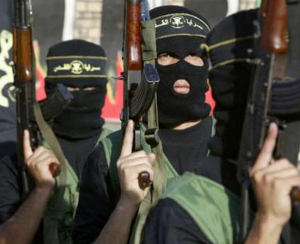Current Situation
On August 20, around 05:00 (local time), an individual armed with a knife reportedly attempted to enter a police station in Cornella de Llobregat, Barcelona and attack personnel, while shouting “Allahu Akbar”, before being shot dead. Reports indicate that the attacker was of Algerian origin and had lived in the area for several years.
The incident is reportedly being treated as a militant attack by authorities. However, police have claimed that they have no reason to believe that there are any direct links to major militant networks or that the assailant was connected to the cell that carried out the Barcelona attacks one year earlier. In addition, the testimony of his ex-wife indicated that the attacker had recently come out as homosexual, and was reportedly experiencing serious psychological instability and was suicidal due to confusion over how this could fit in with his Muslim faith. Some sources within the investigation have claimed that they do not believe the attack to be linked to jihad.
On August 16, a pro-Islamic State (IS) group published a poster on social media calling for attacks targeting police in Spain in both English and Spanish.
Background
The August 20 attack is the latest in a series of violent or militant-related incidents involving North Africans or individuals of North African origins in south and south-west Europe over the past year.
In addition, on July 22, a 29-year old Canadian national of Pakistani origin, Faisal Hussain, killed two and injured three in a shooting in Greektown, Toronto. Hussain was allegedly also known to have had a history of psychological instability and had reportedly expressed concerns about his employment and financial situation to a friend prior to the incident. On July 25, the Islamic State (IS)-linked media outlet, al Amaq, reported that the attack was carried out by a soldier of the Caliphate in response to their call to target citizens of coalition nations.
Assessments
Attack on police station underscores growing trend of violence copying Islamic State methods among psychologically unstable Muslim males
Despite claims that the attacker had a number of problems in his personal life, the possibility of links to wider militant trends cannot be ruled out. On the contrary, the fact that the attacker shouted “Allahu Akbar” and carried out the attack on the specific target that pro-IS groups had called for four days prior indicates that, even though he was likely not linked to any established militant cell, broader ideas of jihad informed part of his motivation. That is to say, while he may not have been looking to aid the goals of the Islamic State or avenge the deaths of Muslims, it is likely that, within his psychological instability, when thoughts of suicide arose, the concept of carrying out a jihadist attack was seen as a viable method. Possibly copying previous ‘suicide by cop’ attacks, in which the perpetrator intends to be killed by security forces. This assessment is further bolstered by the reports that his confusion over homosexuality was, in part, caused by an uncertainty about how it fit in with Islam.
With this in mind, the incident comes amid a continuing trend of psychologically unstable individuals, most of whom are migrants who adhere to the Muslim faith, carrying out attacks that mimic IS-inspired lone wolf incidents. Such attacks tend to be conducted by young males with mental health issues, who are, in part, influenced by the concept of jihadist militancy as a form of anti-establishment violence that has entered the West’s collective consciousness. Psychologically unstable individuals, and immigrants who perceive themselves to be disenfranchised and socially isolated from their community, whether it’s the Muslim or wider community, are copying IS-methods of attacks. In this sense, the media coverage of the various IS shootings and the general global trend of young men using mass violence as an outlet for frustration and disenfranchisement have merged.
Regardless of the psychological issues of the attacker, the fact that the incident came following the call from pro-IS groups means that online jihadist communities, and even Islamic State-linked media organizations, are likely to attribute the event to part of their ideology and larger plan. This is especially the case given the timing of the incident around the anniversary of the August 2017 attacks in Barcelona and Cambrils. In turn, this will perpetuate the aforementioned trend merging psychological instability and attacks that appear to be militant in nature.
Finally, the August 20 attack in Barcelona constitutes the latest in an ongoing trend of incidents related to violent attacks linked to Islamism from within the local North African community in north-eastern Spain and southern France. IS and IS-linked operatives have put a particular emphasis on recruiting in the region, due to the fertile ground for radicalization born from the feelings of disenfranchisement in both the established North African community and among North African migrants. These sentiments, which come partly due to perceptions of otherness within Spanish society and partly due to pressures put on from the local community, have the potential to lead young men towards violence, sometimes personally and sometimes linked to a militant organization.
Recommendations
Travel to Spain can continue while maintaining vigilance, due to the elevated threat of militancy.


